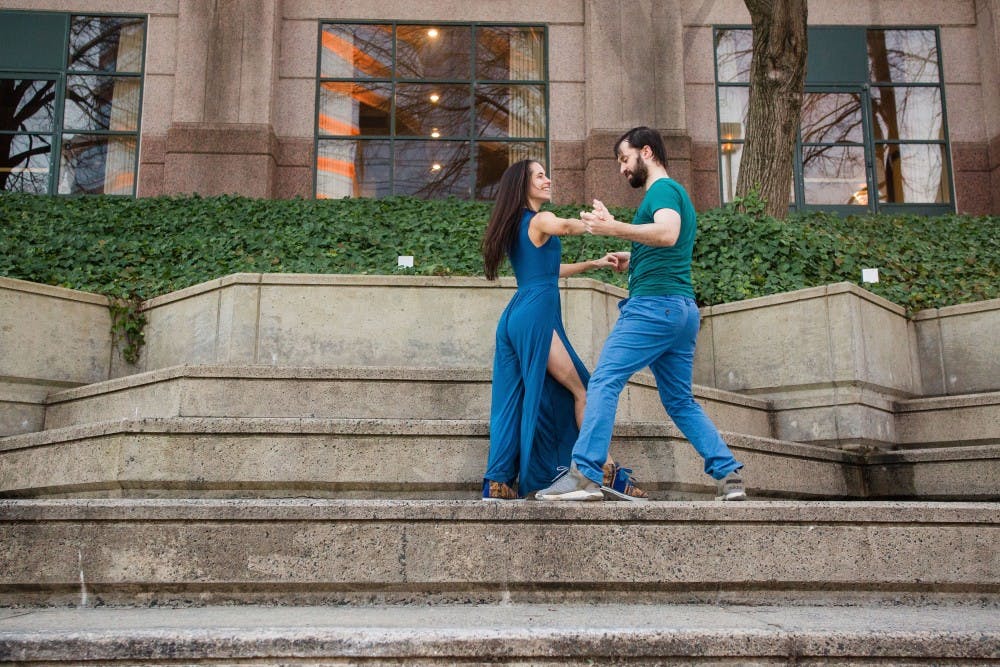If you’ve spent most of your life unaware that “zouk” was even a word, you’re not alone. Robert Pehlman, an instructor and organizer at Triangle Zouk, said he hadn’t heard of the word either until a few years ago.
Pehlman, a graduate student at N.C. State, said he found his way to Brazilian zouk by hanging out with people who were social dancers.
He said that at first, it can be hard for people to get the feel of the dance, which has a very fluid, stretchy movement, but he said it’s not all about the technicalities anyway.
“Zouk has a lot of technique, but a good portion of that technique is about how to connect with people,” Pehlman said.
Lydie Costes, an organizer and instructor at Triangle Zouk, said her passion for zouk comes from the dance’s unique potential for self-expression and the heightened level of connection that distinguishes it from other social dances.
Brazilian zouk comes from lambada, a popular dance in Brazilian clubs in the '80s and '90s, Costes said. As lambada went out of style, Costes said clubs started playing Caribbean zouk music, and people started dancing lambada to Brazilian zouk music and called it ‘zouk.'
“From there it has spread and changed dramatically," Costes said. "It’s found all over the world now, and it takes influences from tango, hip hop, modern dance and other styles, and it's danced to a wide variety of music, so it's really versatile and creative and fun."
Jason Romano, a Triangle Zouk organizer with previous Latin dance experience, said he struggled with this versatility at first.
“Zouk is interesting in that it allows you to work within the beat really closely where you're stepping on the beat precisely, and then it also allows you to break out and play outside of the beat and then go back into it," Romano said.




